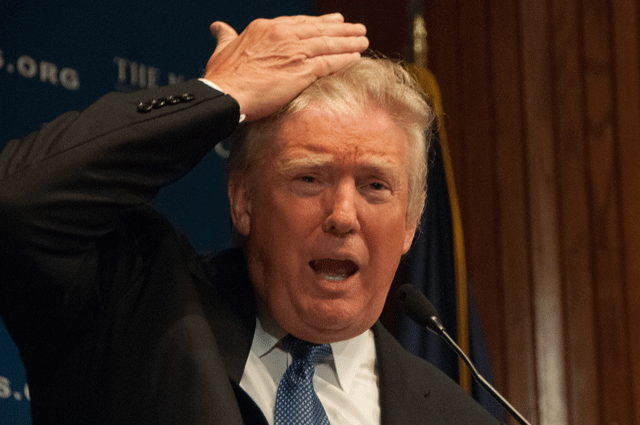US presidential candidate Donald Trump probably wishes he were running to succeed Shinzo Abe instead of Barack Obama.
By Leslie Lee III
Last week, when Trump refused to participate in a scheduled debate due in part to what he considered “unfair” treatment from Fox News anchor Megyn Kelly during previous Fox sponsored debates, the network took a hard-line stance in defense of their conduct. If that happened in Japan, Kelly would probably be out of a job.
As reported in the Japan Times, three TV journalists who have been critical of the Liberal Democratic Party and Prime Minister Shinzo Abe’s government will be relieved of their duties beginning in April. Ichiro Furutachi of TV Asahi, Shigetada Kishii from TBS, and NHK’s Hiroko Kuniya have all either resigned or been ousted after pressure on broadcasters and news outlets from the Abe administration.
Kishii made clear his opposition to the administration’s controversial security bills last September saying, “Voices should continuously be raised (for the bills) to be scrapped.” Last year, Abe’s LDP summoned executives from TV Asahi and NHK to interrogate them on the content of Furutachi’s and Kuniya’s programs.
This crackdown is the latest in a long list of infringements upon press freedom faced by journalists in Japan. In the past five years Japan has dropped 50 spots in Reporters Without Borders’ 2015 Press Freedom Rankings. Some of the incidents that have precipitated Japan’s decline to #61 include:
–A letter sent in November of 2014 LDP to six Tokyo TV stations, instructing the outlets on how the party would like to see that winter’s election covered.
–Lawsuits filed against freelance journalists Mari Takenouchi and Minoru Tanaka, who were targeted by the nuclear power industry for their critical reporting of the Fukushima disaster.
–The passage of the State Secrecy Bill, which set indefinite limits on what government information could be classified as confidential, instituted penalties of up to 10 years in prison for either whistleblowers or journalists who release such information, and ensured those charged with violating the law could not use “public interest” as a defense.
Three voices critical of the LDP being removed would raise concern at any time, but the fact that it came to light the same week Abe’s economy minister Akira Amari resigned due to a bribery scandal – exposed by Weekly Bunshun magazine – is especially distressing. Without a critical and independent media, politicians and government officials cannot be held accountable. Abe and the LDP’s attempts to further bring Japan’s journalists to heel can only be seen as a troubling development for Japan’s democracy.
Image: Albert H. Teich/Shutterstock.com









